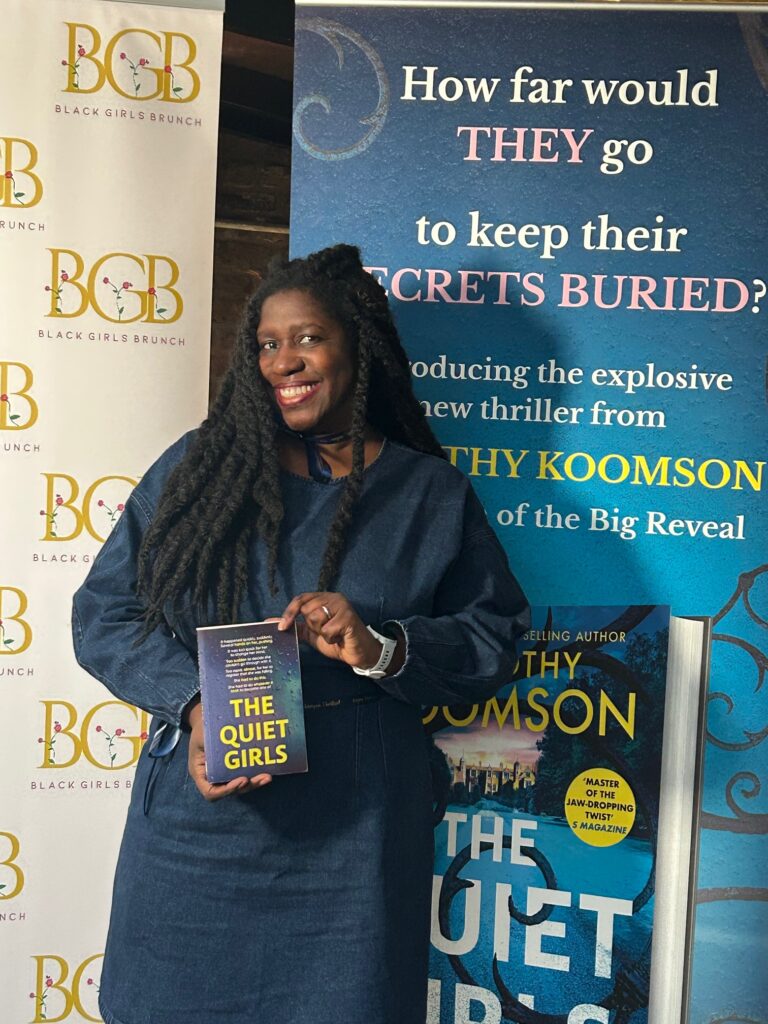
PRE-ORDER THE QUIET GIRLS
BOOKSHOP.ORG
FOYLES
WATERSTONES
AMAZON
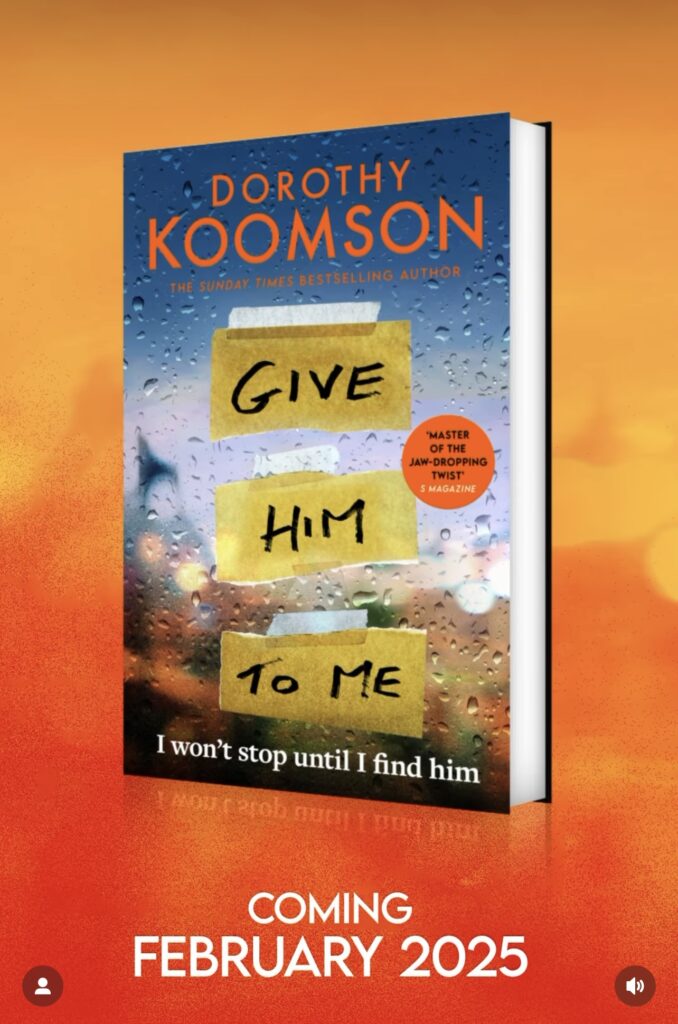
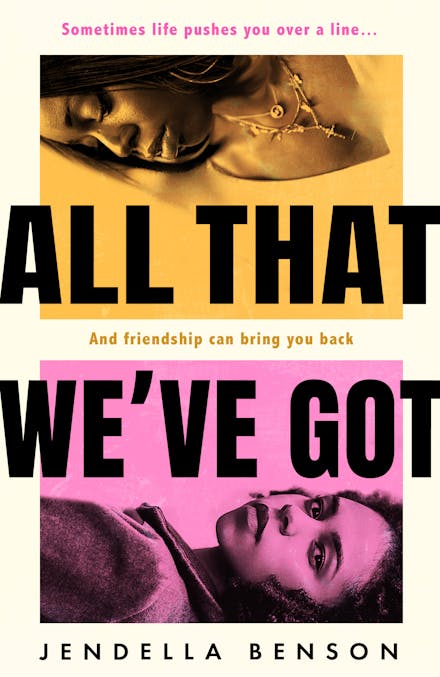
It’s taken me a while to send you December’s book choice because I have been doing so many events. Since the beginning of September, I’ve had at least one event a week – plus a few family issues to sort out and I have been flat out!
Anyways, I’m hoping you’ll have a chance to read this book choicebefore our next meeting date of Tuesday 10 December, but no worries if you don’t get to it, come along anyway and we’ll chat books in general.
So, what’s the third TBR Book Club choice?
Well, I loved it, so do let me know on hello@dorothykoomson.co.uk if you’ve read the book and what you thought. And, as always, do send me other book suggestions that you think other people need to know about.
Talk to you soon.
Dorothy x

TBRBC Headline: A deeply emotional and riveting tale that gives you a peek into the hidden lives of the people you see around you every day.
My thoughts: One of the best things about reading is that when you open the cover of a book or hit play on your audiobook, you get to step into other people’s lives. When you take that step, you discover so much about how other people think and feel; you learn that some people have realities that seem so far removed from yours but are actually very much like your life.
In All That We’ve Got, Jendella creates a tale so that allows you to almost experience the world of two young women in contemporary Britain and find out the things they have to do to survive and thrive in today’s world.
Mimi is a young mother who is desperate to move on from the fraught and emotional circumstances around her son’s conception and birth; Abi is a teen who gets herself into terrifying trouble trying to financially help her mother after the loss of her father. The two of them are neighbours and their paths initially cross in a takeaway one night when Mimi buys a cash-strapped Abi some food.
Their lives keep crossing and intertwining until they seem bound together by Fate itself. This book covers so many real-world subjects – from how young people get caught up in county lines to the real reasons behind the Black Lives Matter protests, from teen grooming to zero-hour contracts – giving very real and emotional context to what we see in the headlines every day.
I tell you, at some points my heart was racing and I was on edge with anxiety willing the characters to be OK, the next I was welling up at the gut-wrenching situations they were in. But I can’t lie, there were a few laughs, too.
This novel also makes the point that I’ve been harping on about for years, one that I’ve seen Jendella make too – we need to build communities to get us through the difficult times as well as to help us to celebrate the good times. Community, finding others around us to share our world with, really improves our lives and helps us to achieve so much more than we can sitting alone in our homes, resenting those around us. Community really is all that we’ve got, and this wonder of a novel shows us why and how.
All That We’ve Got is an easy read, but that does not mean lightweight or frivolous (though I am all for that in a book), it simply means don’t dismiss it by thinking it’s too high brow or trauma-laden to enjoy.
TBRBC verdict: All That We’ve Got is an achingly beautiful tale about the real people behind sensationalist headlines, and it is so perfectly crafted that it has your heart in your throat at so many points, while simultaneously pulling at your heartstrings. I enjoyed every single page.

People regularly ask me how I stay motivated when it comes to writing. And the short answer is: ‘because this is my job and I need to do it. I have a goal – usually in the shape of a deadline when the book needs to be delivered – and I have to get on with it.’
I have a goal. A specific goal.
Because when I talk about goal setting here, I’m not talking big ethereal goals such as ‘get a publishing deal’, ‘have my books optioned for TV’, ‘see my book in a book shop’ goals – those are good goals, don’t get me wrong. I’m talking specific, solid goals that nail you down to do the actual hard yards.
For me, noting down a goal in a detailed way allows me to see what I’m working towards in the short- and medium-term, which frees up a lot of head space for long-term plans and projects.
Especially for you, I’ve created a Setting Writing Goals Worksheet to help kickstart you actually sitting down and doing the writing.
The purpose of the worksheet is for you to set out your intentions for yourself. Don’t use it as a stick to beat yourself up with – no negative self-talk allowed or necessary. Use it as a jumping off point, the place where you say to yourself, right, this is what I want to do and this is how I’m going to do it. Make that commitment to yourself and get going. You can do it.
You can download the Setting Writing Goals Worksheet here.
Dorothy x
How to complete the SETTING WRITING GOALS WORKSHEET
My Writing Goal:
Keep your goal short – no more than two sentences. For eg. ‘I want to finish this short story I started. It will be no more than 7,500 words and form part of my short story collection.’ Or, ‘I want to finish this chapter on emotions in business – it will be the backbone of my non-fiction book and be no longer than 7,500 words.’
Why have I chosen this goal?
Be honest about why you’re setting this goal – no one will see it. For eg. ‘This will be the lynchpin to my collection of short stories. I need to get it done so I can get on with other stories’. Or ‘This chapter will let me know if this non-fiction book will work or not.’
What 3 things do I need to achieve this goal?
Again, be honest with yourself about what you need.
For eg.
What challenges might I encounter?
Be honest, but don’t talk yourself into a fear spiral. For eg.
How will I overcome those challenges?
Be realistic but positive here. For eg.
My writing goal completion date:
Be very realistic but challenge yourself. For eg. ‘3 weeks from now, writing at least 1000 words each Monday 9pm and Wednesday at 9pm every week. More if I get more time.’
Milestones:
Break your goal up into smaller chunks. It’ll be easier to stick to it if you hit more than one milestone before you get to the big goal. For eg.
Milestone 1: 2000 words
Milestone 2: 4,000 words
Milestone 3: 6,000 words
Milestone 4: 7,500 words
Positive words I need to remind myself to keep going.
Be your own cheerleader here. You need one and you’re the best one out there. Banish all negative thoughts in this section, just focus on cheering yourself on. For eg.
Now you have the sheet and you have the ways to fill it in, what are you waiting for? Go get ’em, tiger (as they say in original Spiderman).
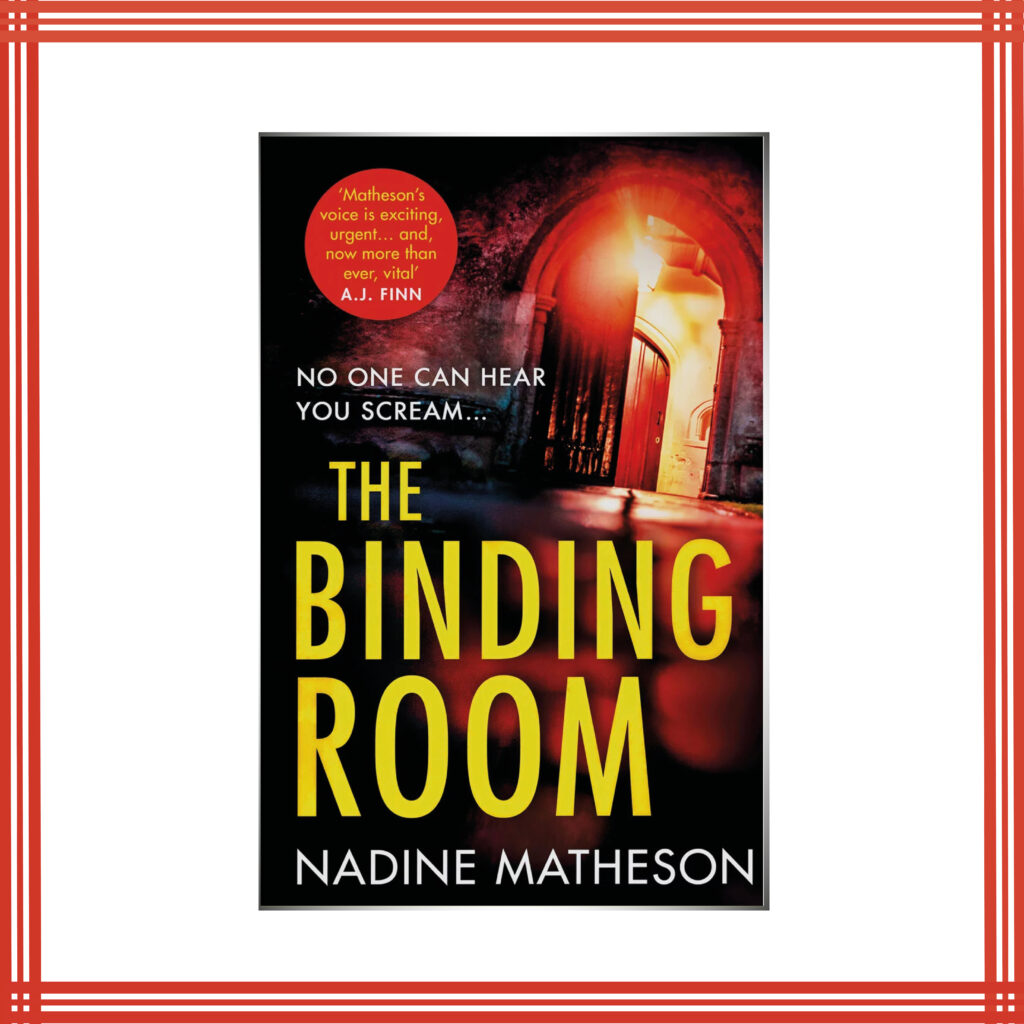
As I’m sure I’ve told you before, as well as being a bestselling author, I am a HUGE reader and I love nothing better than to share the book love. So here I am, sharing the love with The Big Reveal Book Club.
Last time the majority of you who answered the poll said you would love to have online book club meetings, yay! Our first one would be at 7pm on Tuesday 5th November. Hope you can make it.
Let’s get down to business, eh?
I really enjoyed this TBR Book Club selection, so do let me know on hello@dorothykoomson.co.uk if you’ve read the book and what you thought. And, as always, do send me other book suggestions that you think other people need to know about.
Talk to you soon.
Dorothy x
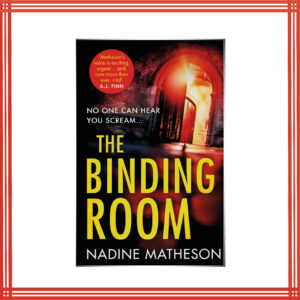
TBRBC Headline: A gripping, mesmerising version of a well-loved book genre that will keep you hooked until the end.
My thoughts: I love a good police procedural (a story that takes us on the journey of investigating a crime) where the characters are relatable because they’re flawed but not so messed up that they annoy me. And this is where The Binding Room enters the group chat.
We were introduced to The Binding Room’s main police characters in the first book in this series, The Jigsaw Man, and in this novel we get to see how everyone is recovering (or not) after the explosive events of the first story.
Detective Inspector Angelica Henley of the South London-based Serial Crimes Unit is called in when the wealthy pastor of a super church is murdered. There seems to be a lot of controversy around the pastor, his ministry and his family. As Henley is looking around the church premises, she comes across a hidden room where there is the emaciated body of a young man bound to a bed. The young man, despite his condition and evident signs of torture, is still alive.
So now the hunt is now on to find out not only who killed the pastor but who the young man is and who did that to him.
At first glance, The Binding Room seems like a simple detective whodunnit, but there are so many layers within the story beyond the main mystery. One of the elements that I found particularly interesting was the exploration of religion and how people use it to try to explain and ‘cure’ mental health problems. Nadine, the author, also writes about exploitation and trauma following the loss of someone close to you.
Henley is an interesting character because while I was rooting for her, I also found her hard to like at certain points – always the sign of great storytelling when my emotions are pulling in opposite directions. One of the scenes that stuck out for me is how Henley treats the pastor’s wife and her reaction when the pastor’s wife calls her out on it. There are some gruesome bits to the book and I did find myself almost reading through my fingers, but there’s not too much of that.
Nadine is a criminal barrister and still teaches ‘baby lawyers’ as she calls them, so it’s interesting to see her write about the world of crime from perspective of the police rather than the legal profession.
I’ve downloaded the next book in the Henley mystery series– The Kill List – on my Kindle but haven’t started it yet. Am very much looking forward to it, though. And don’t worry if you haven’t read The Jigsaw Man, you can get away with it if you want to jump right into the world of the Serial Crimes Unit with this banger of a book. However, if you want to get to know Henley that bit better and understand why she does some of the things she does, do start with book one.
TBRBC verdict: The Binding Room is a compelling and thought-provoking read that will make you think about the ways we deal with different types of mental illness when it shows up in our lives. Definitely worth a read.
Buy the book: Buy The Binding Room or eBook: Buy The Binding Room eBook
Want to sign up for the Big Reveal Book Club newsletter? Go here: Sign up for the newsletter

As well as being a bestselling author, I am a HUGE reader and I love nothing better than to share when I find a book I adore. So here I am, sharing the book love with you via The Big Reveal Book Club.
This book club is all about helping you to find your next favourite read, so I’ll be recommending all sorts of things from the books I read.
Along with these recommendations, I’m thinking of starting a Facebook page for the book club and I’m hoping to get a monthly online meeting going so we can properly discuss the chosen books.
Also, do let me know via the contact me page, if you’ve read the book and what you thought. And I would absolutely love it if you sent some other book suggestions my way.
That’s it for now folks, all that’s left is to introduce you to the book choice.
Talk to you soon.
Dorothy x

TBRBC Headline: It’s wonderful. Brilliant, clever and eye-opening.
My thoughts: I don’t normally read non-fiction and/or historical non-fiction unless it’s for research, but this book captured my imagination in a very special way. It doesn’t read like a historical, fact-filled book at all – it’s written in a compulsive, page-turning style that grabs you and won’t let you go.
Anansi’s Gold tells the story of John Ackah Blay-Miezah who managed to convince people across the globe that before he died, Ghana’s first president, Kwame Nkrumah, had amassed a stash of wealth – gold, jewels, money – and Blay-Miezah was the only person who knew where that treasure was stored. And, he told them, if they helped him out financially, he would give them access to these riches.
Except he knew nothing of the sort – the whole thing was one big con.
Kwame Nkrumah was famously uncorruptable, if he did amass a fortune, it would have been for the good of the Ghanaian people. But just as there was no evidence he had built a massive nest egg, there was none at all that he had anything to do with Blay-Miezah.
However . . . as Yepoka outlines so brilliantly in the book, there is a lot of missing, unaccounted-for wealth from Ghana. A lot of it was stolen by successive British governments who went to extraordinary – and well documented – lengths to make sure the Ghanaian people would never get it back. But even taking that into account, there is still a vast amount of gold that no one can locate, so maybe, just maybe, Blay-Miezah did know something other people didn’t. . .
Blay-Miezah was a very charming conman and some parts of Anansi’s Gold read like caper episodes of Hustle, but some parts are gut-wrenching when you consider the false hope he gave to the people of Ghana who needed the money to repair their country after being colonised for so long.
I spoke to Yepoka recently about her book for Hay Festival book club and she explained how she talked to Blay-Miezah’s ex-wife and children, as well as people who knew him. Her extensive research is there on every page, everything she says is backed up, which makes for eye-opening reading when you learn about various governments’ tactics to keep subjugating African and other colonised peoples.
There is also a lot of insight into the psychology of the con and how people often continue to fall for the con even after it has been exposed.
I had an added affection for this book because my parents are from Ghana, which is why I often throw in a mention of the country in my books.
As I said, this is a wonderful book about a fascinating, flawed man and the history of Ghana. Do pick it up if you can.
TBRBC verdict: Anansi’s Gold is an interesting, intricately researched, page-turning read that will open your eyes to a part of history you probably didn’t know existed.
Want to sign up for the Big Reveal Book Club newsletter? Go here: Sign up for the newsletter
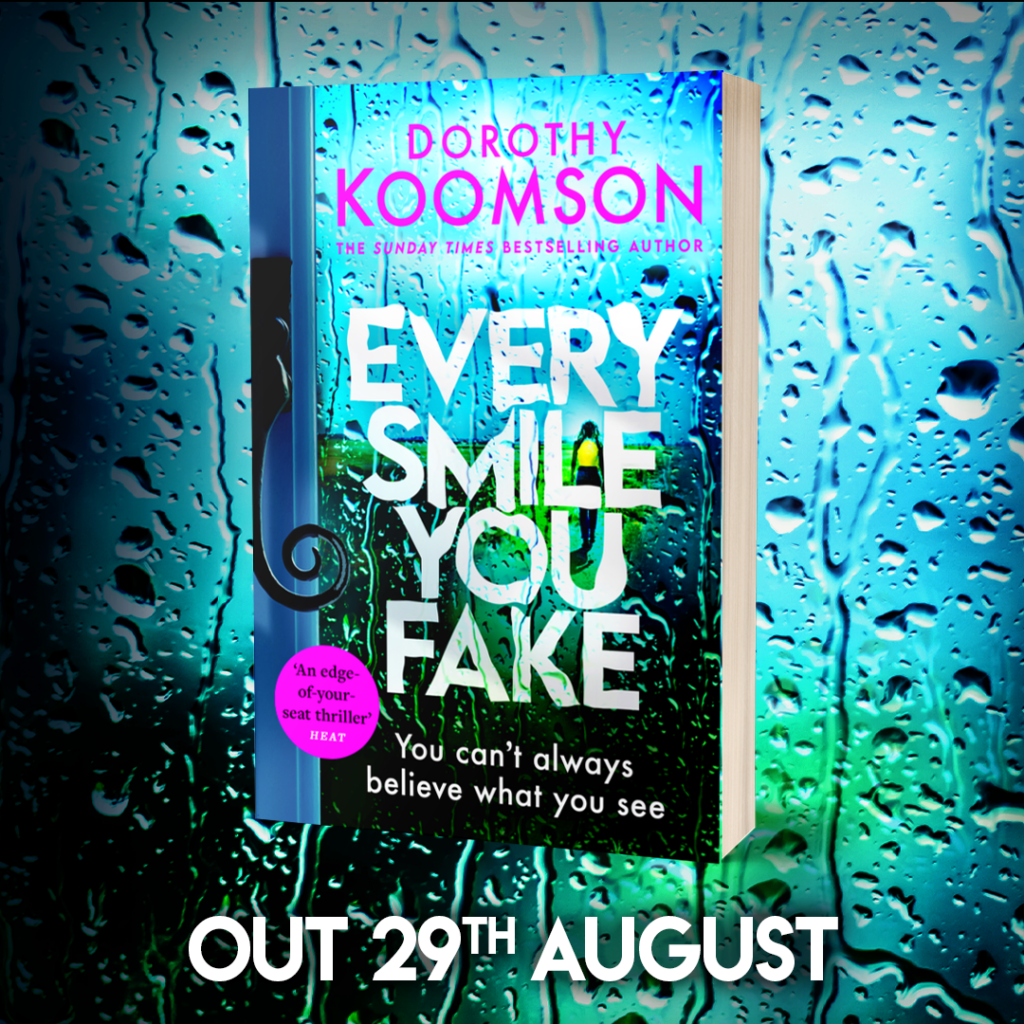
Please take care of my baby. You’re the only one I can trust with him. His name is Arie.
I don’t want to do this, but I have to. So please don’t try to find me. You’ll put him in danger.
I’ll be in touch as soon as I can. X
‘This isn’t so much a question as an observation,’ he says.
We’re in Smithdowne Community Centre, a large community centre-cum-library space near Shoreham on the south coast, and this man stands among the 100-strong audience of book lovers, holding the microphone, as he prepares to hold forth.
Every time. Every. Single. Time. There is a someone – usually a man – who will stand up and say this very thing.
This evening began a couple of hours ago at eight p.m. The audience had settled down in their padded blue fold-down seats, and mic’d-up local Sussex crime fiction author Remi Hayford strode out onto the stage and sat down in the blue bucket chair at the centre of the three chairs, ready to talk about her latest book.
Next came the interviewer, Lucy Tumanow-West, an experienced journalist whose work had been in pretty much every national and local publication. She strode onto the stage and went for the furthest seat, next to Remi.
And then came me, radio mic black box in hand because I did not have pockets large enough for it, walking almost apologetically onto the stage to take my seat on the other side of Remi.
Lucy, the interviewer, had gone quickly through her housekeeping – in case of a fire, etc., etc. – and then had asked Remi to introduce herself and the newest book.
‘The Last Dancer At Brightfell Hall is kind of a locked-room mystery set on a crumbling Sussex estate where the inhabitants hate themselves almost as much as they hate each other,’ Remi had begun. ‘Something happens that brings members of the wider family together at the estate and pretty soon they are all trying to bump each other off for profit, revenge and/or fun.’ As Remi laid out more of the plot the audience lapped it up, hanging on her every word until everyone was rapt, on the edge of their seat, gagging to hear more. It was at this point Lucy turned to me and asked me to introduce myself.
After Remi had whipped everyone up, I knew what I said would barely register at first. But ‘My name is Kez Lanyon,’ I’d dutifully replied, speaking slightly to Lucy but mainly aiming my words at the audience. My voice came out as clear as Remi’s and Lucy’s but not as confident. They were used to doing this, I was not. ‘I’m a psychotherapist and profiler,’ I continued. ‘I usually work with companies to give them insight into the dynamics of their staff relationships and how they can improve company culture across their organisation. I used to do a lot of private practice therapy work with individuals, couples and sometimes families, and I have occasionally helped the police as well as working in prisons and other institutions, but I mainly stick with profiling for companies and organisations nowadays.
‘Profilers and psychologists like me often help writers when it comes to researching the criminal mind – although not all psycho- paths and sociopaths are criminals, many of them become fully functioning members of government . . . I mean, society.’ That had caused a few titters and had eased us into the conversation.
It’d been a pleasant evening and the audience seemed to enjoy them- selves as Remi did most of the talking and I provided any additional information. And then Lucy had thrown the floor open for questions.
So far I have done seven events with Remi, and I’ve found that most people are nice, fascinated and have genuine curiosity when they ask a question. But there is always one. Always one that has ‘an observation more than a question’.
And tonight it is this man.
This man who holds the microphone in his left hand like it is a chicken he is trying to choke, while his right hand is up and ready to gesticulate his verbalised ‘observation’.
I can feel Remi cringe and then internally sigh beside me. Because every time someone has not so much a question but an observation, every time someone starts to speak in that way, she knows it’s going to go something like this: ‘I’m sure your story is very nice and all, but you have to admit it is a bit far-fetched even for fiction, because I’m not sure they’d let someone as unstable as your character be in charge of a serial killer case. It’s fiction, but to be taken seriously, you have to at least allow your story to fall within the bounds of reality, and, with all due respect, I’m not sure it does, does it?’
When none of us on the stage reacts, he continues: ‘What, I suppose, I take issue with is this assertion that you can “profile” people based on nothing more than their briefly observed behaviour. You make a lot of how your story is based in reality and psychological pro- filing, how we can all work out other people’s motivations and their “sins” just by talking to them for a few minutes, seconds you said, seconds, wasn’t it?’ He’s pointing at me, talking to me now. ‘I suppose my question is that . . . no, no, not question, observation . . . is that saying stuff like that can be dangerous. It can give people ideas. We all know this is all a pseudo-science, at best, so I think you should be a little more careful about pushing this stuff.
‘It’s all well and good making up your nice little stories, and I expect you find some comfort in it, but you should be careful about parading what she says,’ pointing at me again, ‘as anything other than a fantasy that you write down in those books of yours.
‘Don’t get me wrong, don’t get me wrong, this is all said with the greatest of respect, I couldn’t do what you do, it would be too unbearably trivial, but just be careful, in case you and your hobby harm women, hold them back by giving them unrealistic ideas and expectations.’
Remi has written six books so far. Every one of them has been created while she juggles a full-time job and children and a wife. Writing books is not a hobby, it is her second job; the small amount of money she makes from it is what keeps her family afloat some years. And this man has dismissed all that. With his kindly delivered words, mendaciously dressed up in ‘all due respect’, he has trashed the importance of her work as well as the significance of her life.
We’ve had this type of ‘observation’ before, but not this bad.
I joined Remi on her Last Dancer At Brightfell Hall tour at the very last minute. Usually Remi works with a criminal psychologist and she was down to take part in these events with her but then said expert had broken her arm. It wasn’t so much the arm-breaking that had caused the problem – it was the afterwards. After she’d fallen in the street, after she’d broken her arm, after she’d somehow managed to get seen and sorted in record time – she went home earlier than expected and discovered that her husband’s idea of ‘working from home’ involved screwing their neighbour in their eldest child’s bed.
‘How the hell he got away with it for so long, I’ll never know,’ Remi had said when she rang to manipulate me into stepping in. ‘And ewww, for his child’s bed when other beds are available.’
Remi and I met years ago during the time I was heavily pregnant and would take my stepson, Moe, who was nine, to Hove Park so he could have a run around and play football. I’d seen Remi a few times, a friendly face who regularly said hello among the blur of trying to keep myself going, and then one day, when I just couldn’t peel myself off the bench where I’d practically collapsed, she came over and started playing football with Moe. We were friends for life after that.
I truly valued our friendship, which was why I’d told her more than once when she’d asked for advice, that I wasn’t going to give it to her. As far as I was concerned, our relationship was too precious to sully by letting our occupations collide. But the moment I’d answered the phone and she’d started to recount the tale of what had happened to her expert, I knew I’d end up doing it. Of course I would. How could I say no when she was so desperate?
‘Do you understand what I’m telling you?’ the man with the observation and not a question asks. ‘There isn’t anything necessarily bad in what you’re doing, but it can be dangerous if you carry on unchecked.’
‘There’s always one,’ Remi had explained to me on the train home from Birmingham after our first joint event, which had been sold out. ‘There’s always one person who wants to make you feel small and dismiss your work as trivial.’ I’d been to her book events before as a regular punter and I’d seen it happen, but it’s a whole new ball game when you’re the one sitting on the other side of the microphone. When it’s you the person with the reasonable voice and the passive-aggressive hand gestures is trying to diminish.
This guy is a bit worse than the others, though. There is something deeper, more targeted and personal in his aggression. I look to the woman sitting beside him. Her gaze is trained fixedly on the parquet floor, her mouth is a set line, her shoulders are hunched as she tries to make herself small, invisible. This man is not just getting at Remi and me, he is trying to put his wife back in her place.
‘Do you understand what I’m saying?’ he repeats to the silence that has followed his tirade. People in the audience, readers who have shown up for a talk by a local-ish author and to hear the stories behind the books, are looking embarrassed for him. He doesn’t realise that. He is so lacking in self-awareness that he thinks the silence is every- one being awed by his brilliance, being impressed with his very public take-down of two people who’d clearly got above themselves, while he simultaneously reminds his wife that anything that matters to her is pointless, meaningless.
He waits to see if any of us are going to argue with him, and the triumph on his face is almost too much to bear.
This book is personal to Remi. Into the framework of the story, the scaffolding of the plot, the structure of the characters, she has woven pieces of herself, elements of her life. Her story is there on the pages of this book; her life and heart are on display in a way that they haven’t been before. It has taken her years to be able to open up like this, to show the hurt, to hint at the healing that is going on, to examine for herself how far she has come. That is why she needed an expert with her – she needed a shield. She needed someone for the audience to focus on so they would not see that this story of a dancer, damaged and hurt, who finally stands up to her past so she can create a better future, is all about what Remi has been through, what she has come through, what she is moving on from.
And this man, this ‘person’ has decided to trash that.
Remi is not going to respond. It’s the best way, in these situations, to pretend it’s not happening, to not allow yourself to be publicly dragged into the muck he’s spreading, but her silence doesn’t mean she isn’t hurting.
‘Well, erm, thank you for that,’ states Ameena, one of the events managers who was in charge of funnelling the questions from the floor, moving to take back the microphone. She has a rictus smile on her face, her body is tense. I wonder how many times she’s had to throw an apologetic look at a stage guest, while smiling at the person who has just insulted or, in this case, hurt said guest.
I stand, scooping up the black radio mic box as I come to my full height. At the same time, I feel rather than see Remi’s smile freeze on her face. She knows what’s coming and she’s . . . well, she’s a hair- breadth away from shouting to the man, ‘Save yourself! You can still save yourself if you take it all back! Say sorry and save yourself!’
‘I do understand what you’re saying,’ I tell him, my voice more confident now. ‘What I think you’re saying is that a little knowledge can be a dangerous thing. For example, with the minuscule amount of knowledge that I have, I can’t completely work out if you were four- teen or fifteen when you first tried your sister’s hair conditioner.’
Everyone falls silent and Ameena has frozen mid-reach for the microphone.
‘I’m joking, I’m joking,’ I say. ‘It was, of course, your mother’s really expensive, special conditioner that you used almost all of and it was your sister that you let take the blame for it.’
The man becomes rigid, petrified at what I’ve just said. I’m right, of course, and he has no idea how I know.
‘I just can’t work out how many times, exactly, your sister got slapped about it while you pretended to know nothing.’
The man’s sallow, scooped-in cheeks start to colour, the red rising up from inside his collar.
‘I’m guessing your wife knows it’s you that uses her conditioner now?’
A few titters escape from the mouths of the mostly silent audience, and he whips his head around to glare at them to shut up because there is nothing funny about this.
He’s right, there is nothing funny about this.
‘I think your status as most favoured child in your family has created a sense of entitlement in you that has continued into adult life but has never been adopted by anyone outside of your households. I mean, your job is boring and everyone else seems to get the promotions before you, and yes, even those pesky women and brown people and, gasp, brown women.
‘Your children have never excelled at anything, so you avoid all con- versations about offspring achievements because you can’t even bring yourself to be proud of them for trying or simply being who they are.
‘You’re the butt of your friends’ jokes but can’t understand why because you think you’re the life and soul of the party. I’ll give you a hint why – it’s cos no one likes you. And I’m pretty sure no one will ever say you’re the first to put your hand in your pocket to get a round in cos you always “mysteriously” disappear when it’s your turn at the bar.
‘You truly believe the world is out to get you, which is how you explain why you’ve never amounted to anything. The reality is, mate, the world doesn’t even know you exist.
‘But, I think the most important thing I’ve learnt about you here tonight is this: I would not be saying any of this to you if you’d just sat there and let your wife enjoy her books in peace. You came here tonight because your wife read Remi’s latest book, loved it and was probably so excited to talk to her book group about it that she made the mistake of mentioning how much she loved it to you.
‘How dare she, eh? How dare she decide on what she does and doesn’t like. So you read it, and were outraged to find it was full of empowered women who don’t need relationships or men to live their best life. And that’s your worst nightmare, isn’t it? The idea that women could survive without you. So when your wife booked to come hear Remi speak, you decided to come put that writer in her place so you could put your wife in her place. Job done, I suppose.’
His face is a rock-solid mask of horror. No one is meant to know any of that, let alone all of that about him. And if somehow someone does find that out about him, they’re not supposed to say it out loud.
I pause . . .
One beat . . .
Two beats.
I smile the biggest smile; giggle the girliest of giggles.
‘How did I do?’ I say, softening my expression, opening my hands, raising my shoulders in cringing surrender. ‘I mean, what I do is a pseudo-science right? I’m probably way off base, aren’t I? Go on, you can tell me what I got wrong. I can take it.’
My smile becomes a wide grin, and the people in the room almost collectively let out their breaths. No one was sure what to make of what I was saying, if the words were jibes or truths, if they were moments of insight or seconds of me being a bitch. Now my smile, my laugh, my self-deprecating body language and words have put them at ease. ‘I was way, way off base, I bet, yeah? Because no one could be like that, live like that, could they? At least, not in real life.’
‘You just couldn’t leave it, could you?’ Remi will most likely say to me at some point. ‘You just can’t stop yourself reading someone for filth and then smiling afterwards. Leaving it is an option, you know.’
‘Not for me it’s not,’ I’ll have to reply. ‘It’s really, really not.’
BrandeeH | @Brandee2ees | Joyn Inn Video | Status: All Joyn Inn | * February 2020 *
Hi there! Thanks for dropping by my Joyn Inn page. Haha! I’ve just got why it’s called Joyn Inn – cos they want people to join in! Honestly, I was today years old when I realised that’s why private videos are called Joyn Only Me, public ones are called All Joyn Inn and ones for select people are called You Joyn Me. Oh wow! I have only just got that after being on this app for like ten years! Haha! Don’t scroll away, I’m not completely ditzy, I promise.
All right, so. About me. I’m Brandee, two ees. You might already know my name and my face though cos my mum is kinda famous. I’m not going to link her in this cos we aren’t in the best place right now.
Please don’t you snitch link either. I’m sure she’ll find this video soon enough.
She became famous for her parenting blog, that became a series of videos and posts on various social media sites. She’s a parenting expert and has a spot on a couple of radio shows, a magazine column. She’s got over a quarter of a million Joyners. Oh wow! Just got that, too.
But I’m twenty, I live in Brighton and I started this channel cos I need a voice. I need a way to set the record straight when The Mothership does her thing.
My favourite things in the world are spending time with my BF, reading, drawing and learning. Weird, I know, but also really true.
I feel we’re going to get to know each other a lot better over the next while, so I’m not going to say too much now. Let me know in the comments who you are and what your interests are. And also what sort of things you’d like to see from me.
And please DON’T SNITCH LINK MY MOTHER. Peace In.
Remi hugs me at the glass front doors to the Smithdowne Community Centre, when her shiny silver taxi pulls up. The driver clicks on his meter as I fold my arms around my friend. The bookseller, Carolynn, from Brighton told us that she’d sold all the books and had to take people’s names and addresses for back orders – a first, apparently – so Remi is happy.
While I was watching Remi sign books, chat and have her photo taken with her fans, a few people had come up to me saying, ‘do me, do me’. I had dutifully ‘done them’ and none of them had been taxing. I hadn’t gone anywhere near as deep as I did with the other man, but they walked away satisfied that they were ‘doable’ but also enough of an enigma, enough of an individual, that I didn’t get everything right.
It’s complicated to explain to people that it is their individuality that makes them profileable. If they were like everyone else, then I would have serious problems working out what made them tick. Like that man, I could tell from the way he had styled his salt-and-pepper hair that he had spent years going to hairdressers instead of barbers, and years trying to find the right products to make it glossy, shiny and manageable. He had been at that a long time, so likely started young. When he was younger, men spending so much time on their looks and hair was frowned upon unless it was to use Brylcreem or the like. His hair obsession had started when he was young and it was a secret, and his contempt for women would have allowed him to let someone else take the blame for using his mother’s products.
His reaction to what I originally said about his sister had shown me that I was right about him, that I had been right about allowing some- one to take the blame for him. This would have grown as he grew, this would have become more entrenched – his sense of entitlement, his refusal to accept responsibility, the idea that his children not excelling reflected badly on him, the fact that he was a thoroughly unpleasant person. It was all there because he wasn’t like everyone else, because he was unique enough to stand up and try to tell off Remi and me.
Explaining to people that being unique makes them more profile- able is difficult because it is counterintuitive and hard to make understandable. So I let people think that their uniqueness, their individuality makes them difficult to decipher, when it’s actually the opposite.
‘I’ll see you soon,’ Remi says, as we loosen from the hug.
‘Yes, I’ll see you soon. This was an interesting event to end on.’
‘I can’t stop thinking about that guy’s face,’ she says in a low voice.
‘I thought he was going to rush the stage and pass out and spontaneously combust all at the same time.’
‘Yeah, I think I might have gone a bit too far,’ I reply. I do regret it when I – as Remi says, ‘read people for filth then smile’. I don’t like to hurt people, and I do sometimes wish I had the capacity to not respond when people did bad things.
‘No, you didn’t,’ Remi reassures. ‘Didn’t go far enough as far as I’m concerned. He was so unpleasant. He came here with the sole intention of hurting me and now he’s the walking wounded. No one asked him to come here. Talk about bringing it on yourself.’
The man and his wife had left the moment everyone stood up. I felt bad for his wife – she’d probably come to get her book signed, maybe have a chat with the author, and her husband had ruined that for her.
Remi hooks her face mask into place before she climbs into the back of her taxi heading home to Haywards Heath, and I take my keys out of my bag and start down the road to go to the back of the centre to the car park. I should have nipped out earlier to move my car to the front of the centre, but I had been so caught up in talking to people, that I’d forgotten. Now Ameena and her staff have gone so I can’t go through the centre to the car park, I have to go on the road.
When I pulled up, it’d still been light and I hadn’t realised quite how many streetlights weren’t working in this area, nor how desolate it can feel around here. Shoreham is nice, and this area is nice, but at this time, it’s taken on a menacing atmosphere. The sprinkles of broken glass and litter that have collected at the base of concrete bollards, and scrappy bits of grassy areas make me feel like I’m walking in a dysto- pian landscape that a series of movies will be made about that will become cult classics. And it’ll start with a woman walking to her car late at night before she’s surrounded by a group of ne’er-do-wells on bikes.
It’s a good thing you’re not overdramatic or anything like that, I tell myself as I turn the corner to the car park. I stop for a moment and my heart sinks as I’m reminded exactly where I parked.
And it’s a good thing I’m not parked right at the other end of this empty car park so I have to walk all that way on my own, in the dark, with my overdramatic sense of fear weighing me down, I add.
This is the type of night that is more menacing than dark. It’s the type of night where bad things lurk, where stories are changed, lives are ended. Rational or irrational, it’s the type of night that makes me frightened.
I’ve been in more than one life-threatening situation, I know that it rarely starts like this, but my heart is already beating faster, my breath is becoming shallow, my skin is clammy. I start to move across the car park, wishing to be in my car as soon as humanly possible.
I sense it before I hear or see it – movement to the side of me, some- one stepping out of the shadows, intentionally coming at me. Someone in the night, coming to get me, to change this part of my story or even end it.
‘I want a word with you!’ he hisses as I move back and sideways to avoid a blow that I thought was coming.
The voice is familiar even behind the threat. It’s him. The man I humiliated earlier. And I’m guessing, he wants more than a word with me. I suspect, he wants several words with me. And probably more than words, now I see how his hands are clenched in fists.
I didn’t notice before how large his hands are. Nor how generally huge he is. When I was on the raised platform, he didn’t seem so big. I might have assessed him differently if I’d known, properly, how tall, rangy, big-limbed, large-handed he truly is. He is massive-handed. He could do a lot of damage with those hands.
I wouldn’t have said anything different to him, I would have just logged in my mind that he was a physical bully as well as a mental and emotional one.
‘You’ve got a lot to say in front of an audience, haven’t you?’ he snarls.
The terror suddenly grips like a vice, clenching my heart, my stomach, my chest. Danger radiates from him like a neon sign. He is going to do me real harm.
‘Now it’s just you and me, say it again. To. My. Face.’
His wife is two steps behind him, embarrassed and terrified at the same time. This isn’t the first time she’s been in this situation, I can tell. Had I known the true size of him, I would have realised that he would not slink away, tail between his legs, to rant at his wife, ban her from book club and throw out all of Remi’s books. If I had known he was a physical bully as well, I would have expected him to wait for me in the car park.
‘Say it to my face,’ he threatens, coming even closer. ‘If you think you’re so clever, say it to my face. Right now.’
I’ve been trained to defuse a situation, I know what will stop this thing from escalating. How well-delivered words, suppliant body language, considered facial expressions, can take the heat out of the moment, can calm everything down so everyone walks away with their dignity intact and their bodies undamaged.
I know how.
I know I should.
But nah.
Screw him.
‘Which part?’ I say, my tone cool. You can only hear the wisps of
the worry gripping me inside, the fear fighting with my defiance, if you know me. This man does not know me. He does not know that I can be pretty much petrified, but absolutely able to confront him in the space he has created.
He leans down into my face, his snarl taking over his whole face, pulling his lips back to show his teeth, narrowing his eyes, scrunching his nose and forehead. His wife steps forward because she knows he’s going to hit me. She knows, and she’s going to try to intervene. She’s going to grab at him, shout at him to stop, she’s going to scream at me to run. None of it will do any good. If he crosses that line and hits me, nothing will do any good.
Which is why I say, ‘Seriously, which part would you like me to repeat? I said a lot of things, which part do you want me to say again?’ I am throwing more fuel on the fire of his anger but I don’t care.
Honestly, screw this horrible man.
I have my keys hooked between my forefinger and middle finger – a weapon ready to be used, I have sensible shoes on that will allow me to run to my car, my safe haven at the first opportunity. But, no matter how scared I am, I’m not running.
He tries to make himself seem physically bigger by lowering his head even closer to mine. The orangey light from the car park casts odd shadows on his face, and adds an extra layer of menace to the air.
I have been here before.
I have been in a place where I have had to choose: stand my ground or run and hide. Fight or flight.
And I chose this, I will always choose this.
I see hesitation flit across this man’s eyebrows, the place where involuntary expressions take place. He’s uncertain suddenly.
We’re all profilers, we can all work out people with minimal information. It takes a while to be able to verbalise a person’s personality within minutes of interacting or observing them. But we can all do it. We all do do it.
This man is profiling me as he tries to intimidate me and this is what he sees: a late-forties Black woman with shiny black twists smattered with threads of grey, and a spongey body and smallish stature and smart mouth.
He sees a woman whose dark eyes have stared into oblivion. He sees a woman who has stared death in the face and has walked away.
He sees a woman who is probably traumatised, who probably relives those moments over and over, but she is still here.
And most importantly, he sees that she is not backing down.
He doesn’t know all this on a conscious level, he knows it by instinct, which is how most of us profile other people. He knows this because his usual tactic of using his size to loom over someone and intimidate them isn’t working. Usually, he just balls up those fists, he moves in a threatening way and people capitulate. They shrink away. They concede ground. Rarely does he have to follow through.
With me, he realises, he will have to.
And he really doesn’t want to do that. He’s not so angry that he could get himself into trouble with the law on a Tuesday night in May. The realisation makes him hesitate, his anger wavers, his features
are suddenly showing his uncertainty.
‘Let’s never speak of this again,’ I state and step back away from
him before I walk away.
Don’t look back. Don’t look back, I tell myself as I stride on shaky
legs towards my car. I am still trembling. Yes, I’ve been in dangerous, life-ending situations before, but that has only made me more scared. More aware of how close it’s possible to come to not surviving.
What if you’d read him wrong? I admonish myself as my breathing in my ears ramps up to hurricane levels, and my heart canters in my chest. What if he wasn’t actually a coward who hides behind his size and loud voice? What if all your profiling and psychological training hadn’t been enough, hadn’t given you enough information, and you hadn’t properly understood him? You could be lying in a pool of your own blood right now.
Being catastrophically wrong has happened before.
I thought I had a profile down, sorted. I thought I had a handle on everything; knew everything about everything. Looking back, I can see it was arrogance, it was me thinking it was possible to know every- thing about everyone.
And someone died as a result of that.
Someone died because I got it all wrong.
My hands are quivering so much, my fear is so loud in my head, I
can barely press the unlock button on my car keys. I try the handle and the door doesn’t give. I didn’t unlock my car; I’ve just locked it. That means . . . Jeez. That means I didn’t even lock my car door before I went into the event. That means my car has been sat out here, open and ready for someone to come steal it. I am a ridiculous person.
Still berating myself in my head, I unlock the car door, throw my bag onto the floor of the front passenger seat and climb in.
Once sitting, I allow my forehead to fall onto the steering wheel. I need to pause for a moment. Recentre myself. Calibrate my body so I can safely drive back.
There’s someone else in the car.
I can feel it.
I’m not alone in here.
I’m not sure when, but I’ve stopped checking the back seat before I
climb in. I used to do that as standard and now not only have I stopped doing it in general, I didn’t even think to do it when I realised my car wasn’t locked.
I wait for something to happen, for the person to do something. But nothing. They don’t make a move, don’t try to grab me.
Without lifting my head, I grope for the door handle, carefully pop the door open, and then slide out. From the safety of being outside of the car, I peer into its now illuminated interior. Then double-take.
Can’t be.
Can’t be.
I quickly open the back door to get a proper look. Staring back at me is the face of a very young baby.
CARRY ON READING here: Your chosen bookseller and here: Berts Books and here: Amazon
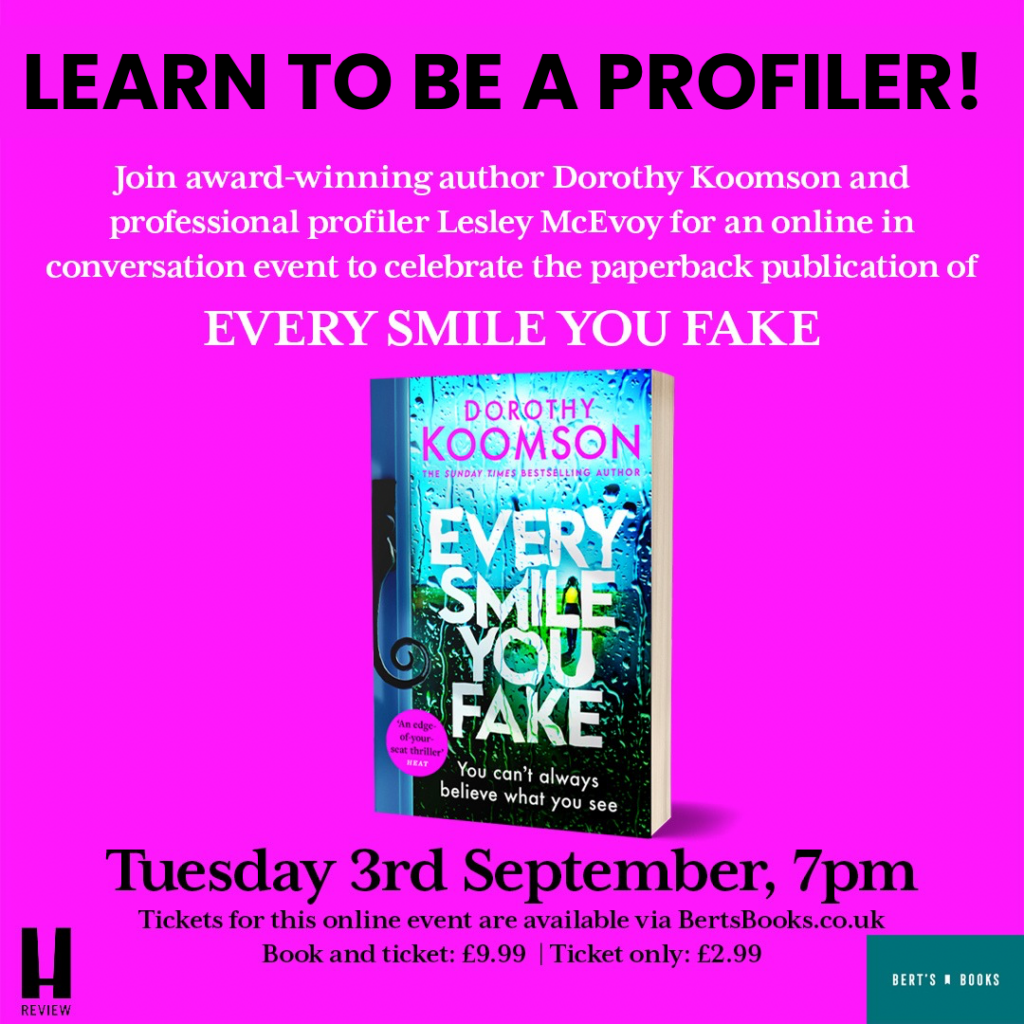
So how you doing? Hope things have been all right for you despite all that’s been going on. Cos it’s been a LOT hasn’t it? I’ve spent a lot of time trying to regroup, and I think I’m getting there. Hope you are, too.
Anyways, I asked you a question about whether you’re a natural-born profiler? Do you think you are? Well, I do. Truly. There’s a bit in Every Smile You Fake that says: ‘We’re all profilers, we can all work out people with minimal information. It takes a while to be able to verbalise a person’s personality within minutes of interacting or observing them. But we can all do it. We all do do it.’
The more I researched that part of Every Smile You Fake, the more fascinated I became about the area of psychology – mainly behavioural science – that covers profiling. I’ve always been interested in psychology, the human mind and how people interact with the world as well as themselves; and I think I told you before how I sometimes wonder if I should have pursued the psychology part of my degree instead of the media/journalism part? Creating Kez, a character who lives – partially – the life I could have was a wonderful chance to explore that path not taken. And it added to my love for her and the other characters.
You know I’m all about sharing the love and helping others, so OBVIOUSLY, I want to share the fascinating insights I got writing Every Smile You Fake with a book event where you can learn to tap into your natural profiling skills and start to use them to understand and profile the people in your life.
That’s right, on Tuesday 3 September 2024 (next week) at 7pm, I’ll be joined online by profiler, therapist, behavioural analyst and crime novelist, Lesley McEvoy to reveal the psychology behind the book AND teach you how you can tap into and use those natural profiling skills you have.
Lesley was one of the many experts I spoke to when researching Every Smile You Fake, and she’s so good at teaching with humour, I know we’re going to have so much fun.
You can get tickets for this Learn To Be A Profiler event via Berts Books website: Learn To Be A Profiler The ticket pricing:
Event ticket & Book Bundle – £9.99 (Includes: a ticket to the event, a paperback copy of Every Smile You Fake and p&p worth in total £15.98)
Event only ticket – £2.99 (includes ticket to the event)
Do come if you can, it’ll be soooo good.
So, you probably know by now that in two days (Thursday, 29 August), Every Smile You Fake is out in paperback. It’s been a bit of a journey writing this book, so I hope you don’t mind me sharing my hopes for the book with you.
My hope is that it becomes the most talked-about novel on your shelf – virtual, audio and real life. Why? Because every day I turn on the TV or log onto the interweb and see one of the themes explored in the book playing out in the real world. Every day I see the things I wrote about happening in my immediate reality and I want everyone to talk about it. I want us to be aware of how the online world can absolutely effect and influence our real life experiences, even if we’re barely online.
Someone I spoke to over the weekend said she’d given a copy of Every Smile You Fake to a friend to explain to her friend why she should be cautious about documenting every moment of her child’s life on social media.
A person who messaged me after reading the book said: ‘I just finished reading Every Smile You Fake . . . It’s so terrifying to think that characters like [redacted to avoid spoilers] exist and can have that much influence over people, yet I do know they exist. I teach children in foster care and have had to do a lot of work recently with a young man where we’ve had many discussions about the real-life version of [redacted to avoid spoilers] (who I imagine you’ve based this character on) and how my young man is influenced by what he is saying. Like I said, it’s terrifying. . . Thank you for bringing these very current, relevant issues/situations to your story.’
And as a reviewer on Amazon wrote: ‘Aside from being a gripping read this was an intriguing look at the psychology behind some of the online figures pushing their misogynistic views. It showed how young men can be radicalised, even if they have never previously shown any leanings in this way, and how important it is to keep conversations open, particularly with the young people in our lives and keep an eye on what content they are consuming online.’
Like I say, I want us to talk about these things, I want you to think of Every Smile You Fake as your gateway into exploring how sharenting, online influencers and pressured family lives are being shaped in the modern world. These are important conversations we need to have and I want you to find where to start those chats via my novel.
Really hope to see you at the event next Tuesday, it’s going to be so much fun and I would LOVE for you to be a part of it.
If you can’t make the event, but want to pre-order Every Smile You Fake, you can do so here with this Link To Your Preferred Retailer or Berts Books or Amazon.
Hope all is good with you.
Dorothy x
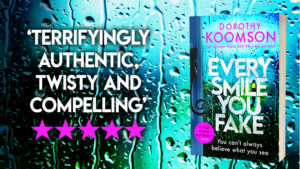
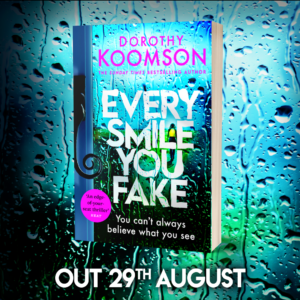
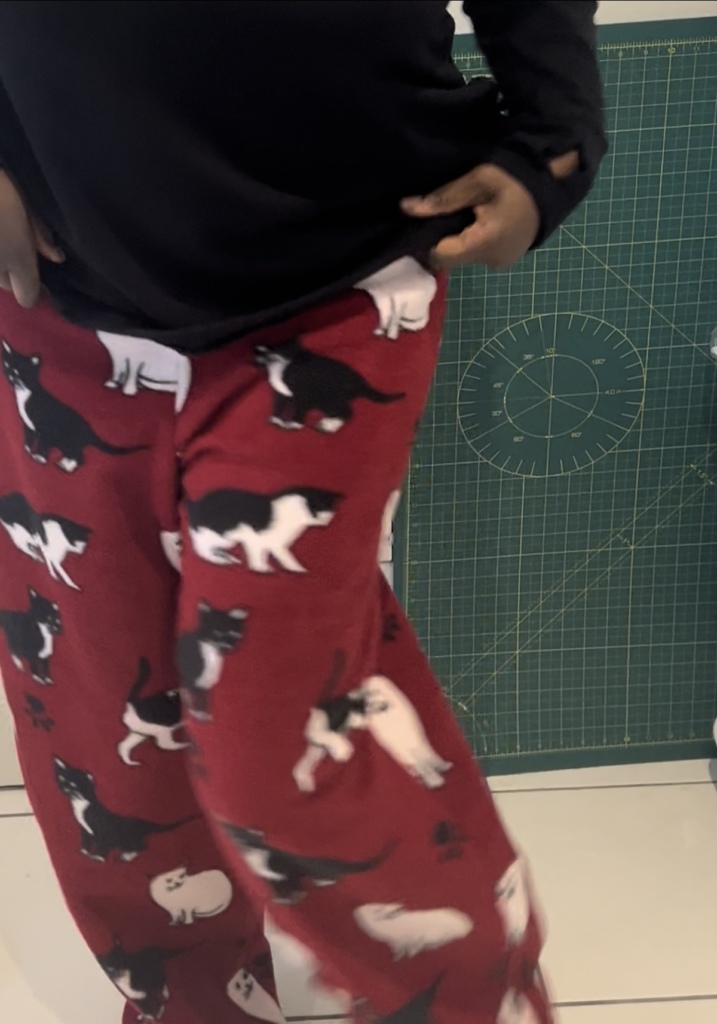
My sewing teacher hated me.
There, I’ve said it.
I’ve started this so many times and each time I abandon writing it down because I felt bad about revealing just how awful this woman was to me. I’ve felt ashamed that it happened.
Why did she hate me, I hear you ask? Why indeed. To paraphrase Kez says in Every Smile You Fake: I’m convinced I’m a nice person so I’m always taken aback when people don’t like me. But why would a perfect stranger take against me when she’s meant to be teaching me how to take my sewing to the next level? Well, I have my suspicions.
Before I explain my suspicions, let’s be real for a moment: despite me thinking I’m a nice person, I do know I am not everyone’s glass of pomegranate cordial with fizzy water. I do accept that disliking me is everyone’s prerogative. But, usually, that dislike comes from spending a bit of time with me, you know, putting in the work to discover just how irritating I can be.
This sewing teacher hadn’t known me for more than five minutes before she took against me. And why? Because I had ambitions to make a supercool, super-cute denim jumpsuit that I saw in a sewing magazine and she decided she couldn’t possibly let me make it. It felt very much like she thought I needed to be taken down a peg or two, that she thought I was an uppity thing who had delusions of sewing skills and I needed to be put in my place. And she was very targeted in how she set about bringing me down.
First, she declared the pattern was too complicated to work out from the way it had been printed in the magazine. It was complicated, I’ll concede to that. So it was a good thing that Dorothy and Dr K had spent that afternoon working out the pattern, tracing it out and cutting it out for Dorothy to take to class then, wasn’t it?
When I produced the pattern pieces, her face fell. But don’t you worry, she rallied admirably. She examined the instructions then looked up at me with a look of delight on her face: ‘You can’t possibly make this jumpsuit,’ she says to me.
‘Why?’ says I.
‘Because it doesn’t go up to your size,’ she replies.
Reader, dear reader, is this not the point of making your own clothes? So you can make things go up to your size? So you don’t have to be bound by what the clothes’ manufacturers decide your size is?
When I said something to that effect, her answer was basically: ‘Yes, but not in this case. Because in this case, the pattern is trash (she implied but didn’t say that) and your body shape – slender frame with a large bust – is all wrong for this pattern.’ She did say that part. And you know what, I probably wouldn’t have minded so much if she hadn’t looked so damn triumphant while saying that this pattern wouldn’t work for my curves.
Suitably chastised for how I look, and thinking I could sew something a little challenging, I slunk away to sit in the corner feeling terrible about myself. I left the class wondering how I managed to pay someone to make me feel bad when there are places all over Brighton, nay, all over the country where I can get that type of treatment for free.
But, you know, I’m nothing if not a trier, so I ordered myself another slightly similar jumpsuit pattern in time for the next class. This one went all the way up to well past my dress size and this was going to be all good, yes?
No.
Still too small, still wouldn’t make enough jumpsuit for these curves. So, under great sufferance and with much sighing, she decided she was going to get some extra paper and help me reshape the pattern. And thus I entered a new level of hell – standing in a room full of strangers, being fitted with a paper pattern and having my chest periodically hoisted up to show where it should be and how we were going to have to alter the pattern to make accommodations for the lack of hoistedness.
Yeah, at this point, I’m feeling royally body shamed. I’m battling hard not to, but it’s difficult. The thing is, I love my body. It does a lot for me, even when I don’t feed it the best food, I don’t give it its vitamins, I don’t sleep or exercise enough, my body keeps showing up for me. And I love it for that.
I’ve spent *cough, cough* years trying to resist and unlearn the message that my body has to look a certain way to be ‘normal’; that it has to fit a certain size of clothes or there’s something ‘wrong’ with it. It’s a message we’re constantly fed, and we’re constantly supposed to internalise while we do everything we can to meet impossible body goals. I’ve fought and fought it, I’ve spent years on an even keel – so I didn’t expect a new villain to enter this battlefield in the guise of a woman who was meant to be helping me with something I found fun.
Back on t’webs I go, seeking out a pattern that will contain my apparently overgenerous proportions. Quick aside here, body sizing on patterns, particularly older patterns are seriously messed up. You need to measure and measure and measure again to get the proportions right – and size 16 you may be in the real world but size 24 you could well be on a sewing pattern.
I go back to class with a third pattern and that is big enough (!). Hurrah? Erm, no. The sewing teacher is annoyed I’ve got a third pattern (not as annoyed I, believe me) and manages to get a few swipes in about the size of my chest and how we’ll still have to work hard to make it fit around there.
Keep in mind, please, this is week three in our sewing course journey and everyone else is cutting out fabric, constructing garments and using the machines and I am still without a viable pattern. And then she starts to tell me that I need to get some toile to make a practice garment first. She hasn’t told that to anyone else. And a couple of people do have garments that are as complicated as mine. At this point, I’m already on the edge when she pipes up with, ‘Are you sure about this pattern when it has those pockets on the chest area – and will be, you know, quite large?’
And I was done.
Someone needed to stick a fork in me because I was done. D.O.N.E. I couldn’t take any more and decided to quit. While she was a bit rude to others, she was going above and beyond with me. Not only had she effectively stopped me from sewing while everyone else is well away, she had made me feel awful about myself. And I didn’t want to be feeling terrible about myself and my body at this age. Not at any age, really, but at this one? Really?
She was making it very plain that she hated me.
It wasn’t just me who saw this – a couple of the other students saw it as well. And when I made it clear I was probably not going to come back, they told me not to leave because they liked me, liked my energy. Which was a nice reminder that I can get on with people, I am nice and likeable (mostly).
Despite them saying I should stay, I was very close to rock bottom. I decided I should probably throw the towel in and get rid of my sewing stuff while I was at it. After all, I wasn’t going to be doing this large chest refitting and redrafting every time I wanted to construct something. Even if I wanted to do all that, how would I be able to attempt it without being reminded of how this lady made me feel, how she made me start to doubt the beauty of my body? As Maya Angelou said, ‘I’ve learnt that people will forget what you say, people will forget what you did, but people will never forget how you made them feel.’
How this woman made me feel was awful. Absolutely awful. But I had paid my money upfront and I knew I would encounter a whole world of gaslighting about my experience before I got a refund because this woman tried to diminish me. I had to find a way to not lose my money by getting what I actually came for – to learn sewing techniques such as how to do zips and plackets and elastic waistbands and buttonholes.
So, week five I returned with zips, buttons, scrap material and a determination to get what I actually wanted from those lessons. By hook or by crook I was going to learn those sewing techniques.
She was not happy, of course. She asked why I didn’t want to carry on with the jumpsuit. Short, internal answer, ‘I’ve had enough of your brand of body shaming’, answer I said out loud: ‘I need to know all these techniques so I can finish off the jumpsuit at home.’
She couldn’t say anything to argue with that so, triumph for Dorothy, yes?
Kinda.
That week, she (begrudgingly) showed me invisible zips (evil things), normal zips, French seams and top stitch seams. This is cool, I thought. This is what I thought I’d be doing. Real-life guidance that I couldn’t quite replicate in the online lessons I took. This is what I need.
So imagine my face when the next week she gave me a book and told me to look in there for any info I needed – including how to shape clothes to the larger bust. 🤪😭 Everyone else was adding lining to their stuff, flirting with top stitch and using the overlocker to finish off, I am reading a book to work out how to do fell seams.
The week after that, I sort of gave in, I decided to make something. I thought I’d test out how to add elastic into a garment by making pj bottoms from leftover cat print material. She happily helped with that, with nary a word of body shaming.
We parted on fairly amicable terms – I finished the pj bottoms and said goodbye knowing I would never see her again. For her part, she didn’t break me, but I think she had a bit of fun trying.
Thankfully, my love of sewing is stronger than her attempts to immolate my confidence and I’ve carried on laying down those stitches whenever I get the chance. I even managed to crowbar a sewing joke into Give Him To Me and thought about applying for Sewing Bee.
But, you know, it was a close thing. I nearly went down. The thoughts that woman put in my head about the shape of my body were no joke and if I weren’t an innately stubborn being with a sense of self, who knows what could have happened? Where I’d be? I truly dread to think.
You know the biggest casualty in all of this? My bank balance that has borne the brunt of trying to find a jumpsuit pattern that would satisfy that woman. I currently have eleventy billion jumpsuit patterns in my house, and I can’t even begin to look at any of them.
I guess you’re wondering why I’m telling you all this? To be honest, I don’t know. I opened up a document to type a very different weekly update, and this came out. Obviously, it was time. Obviously, my subconscious wanted to feel unburdened about this after all this time. Actually, I’m not only feeling relieved, I’m feeling pleased and proud that I am who I am, annoying and irritating bits and all. I hope you feel that way about yourself, no matter how tries to bring you down.
And if you’re in need of a jumpsuit pattern, I know a lady who can sort you out.
COME AND SEE ME!
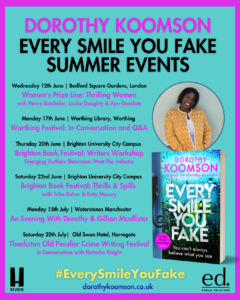
I’ve got a few events coming up, have a look at the poster above and click this link to my website events where you’ll find links to buy tickets.
I cannot tell you enough how I hope I get to see you. And if none of these are near you, don’t worry, there are a few more coming up come Autumn.
Hope all is good with you lovelies.
Talk to you soon.
Dorothy x

‘They’re over-represented in politics for sure.’ That’s what the clinical psychologist I spoke to when I was researching Give Him To Me told me when we discussed psychopaths. ‘You definitely meet more in every-day life than you do in say prisons, but they do seem to be over-represented in politics and political life.’
According to VeryWell Health: ‘Researchers use the term “psychopath” to describe a person who exhibits consistently callous and unemotional behaviour. A person displaying psychopathy lacks empathy, shame, and remorse, which leads them to consistently violate the rights and well-being of others. They may lie, cheat, or steal to get their way.’
Thanks for reading The Big Reveal with Dorothy Koomson! Subscribe for free to receive new posts and support my work.
I mean, this isn’t something I didn’t know, but it was properly clarified when I wrote Every Smile You Fake. The profiler and therapist I spoke to then explained that people who show signs of psychopathy are very often specifically recruited to high level positions in companies and government. Why?
Well, as my main character, Kez, in Every Smile You Fake explains: ‘Psychopathy is a trait that I’ve seen displayed by so many people in the upper echelons of the businesses I consult for. They are there because they have no conscience about doing whatever is necessary to get a company what it wants. They are recruited for this reason. They will do the things other humans – normal humans who know what it is to feel empathy and worry and love – will not do. They have no conscience and will readily twist a narrative to make themselves the victim, to make you the enemy for questioning them.’
Substitute ‘business’/ ‘company’ with ‘political party’ and look where we are. At the moment, it feels like a lot of politicians are going out of their way to prove both psychologists’ points, because what the hell? What the actual hell is going on?
We have the billionaire Prime Minister trying to convince us that the last 14 years, which have seen their policies cause poverty and suffering to reach epidemic levels, haven’t actually been that bad, so we should vote for him. And then we have the leader of the ‘opposition’ walking, talking and acting like a dictator, deciding his way is the only way, and not listening to what voters are saying they actually want from a change of resident at number 10. Remind you of anyone who was resident at Downing Street circa 2019-2022?
All of this is against a global backdrop of political leaders who are actively ignoring their populations’ pleas and calls for an end to genocide, massacres, fighting, famine and slavery. It’s truly horrifying.
Although I’m politically vocal and active in real life, I don’t usually talk politics online because it often leads to arguing with people I don’t need to engage with, but these past few months, weeks and days have been so distressing I’m having to express myself here.
And this time period have brought home in the strongest terms the psychology behind the thirst for political power. How that thirst can act as a trigger for expressing psychopathic behaviours in the characters in the stories I tell and, it seems, in the people who run the world.
You know, when someone in public life or in politics displays again what I’ve come to see as psychopathic traits, I have to remind myself: You can’t shame these people/politicians/High-Functioning Psychopaths (HFP) into doing the right thing. They do not feel shame, they will not be upset when you show them the consequences of their actions. The only way to get through to them is to make them see that it’s in THEIR best interest to do what you are asking them to do
And that gives us substantial power and is how you deal with these ‘friendly’ neighbourhood psychopaths. A note to your MP threatening to withdraw your support and vote is going to have much more impact than asking them to think about whose life is going to be effected when they privatise the NHS. (Make no mistake, both of the ‘main’ parties are openly promising to do this right now – they’ve been grooming us for years to accept that the huge amounts of money we already pay isn’t enough and we need to give more to the private sector to sort out our health service’s problems.)
But on the point that we have power over our MPs, we’ve seen it in action time and again – kicking up enough of a fuss on and off social media, almost always causes whichever HFP we’re dealing with to back down, change tact or resign. If enough people oppose them, they’ll either pretend they were never going to do that thing, that you never saw or heard them try to do that thing, or they’ll try to change the policy/law to allow them to do that thing (anti-protest laws anyone?).
High functioning psychopaths (HFP) as I think they are, care more about how something effects them and their public standing than how it can potentially upend or even end ordinary people’s lives. So this is the time for us to step up and flex our power.
It might seem inevitable that we’re going to be trading one set of high-functioning psychopaths for another, but I truly believe that it’s important to try to mitigate the coming storm even if we can’t prevent it by making our voices heard before it happens. Write to the leader of the opposition, to your MP or the person standing in your area and make your concerns clear, remind them that YOU can stop them getting that spot in power they’re chasing. Remind them that they work for you, not the other way around.
Babes, I’m not going to tell you who to vote for – that’s between you and your ballot paper, but even if I was that way minded, I’d have no clue who to suggest.
I know that in the past I’ve held my nose and voted because one group of HFP was absolutely and objectively worse than the other. But now, in this here 2024, with the real-life big reveals about previous candidates of choice, I just don’t think I can hold my nose again. And that’s got me feeling a lot like Kez at a certain point in Every Smile You Fake – each choice I have comes with huge downsides and I’m not sure which downside I can live with more than the others.
At this point, I am keeping my fingers crossed that I’ll get a last-minute plot twist that will see a common-or-garden politician who comes with a normal amount of sleaze and dodginess swooping in to offer a viable option.
Yes, I know hoping for a ‘normal’ dodgy politician isn’t ideal thinking, but at the moment, I’d take one of those old-school politicians who’d resign for fiddling their expenses over the truly terrifying psychopathic levels currently being displayed by leaders and politicians across the world and in this country right now. Wish me – and you – luck, I think we’re all going to need it.
That’s all for now, lovelies. Hope you’re as OK and sheltered from this storm as you can be.
Dorothy x
You can pre-order Every Smile You Fake paperback (on sale 29 August) here: Pre-order Every Smile You Fake paperback and Give Him To Me hardback (on sale 15 February) here: Pre-order Give Him To Me
